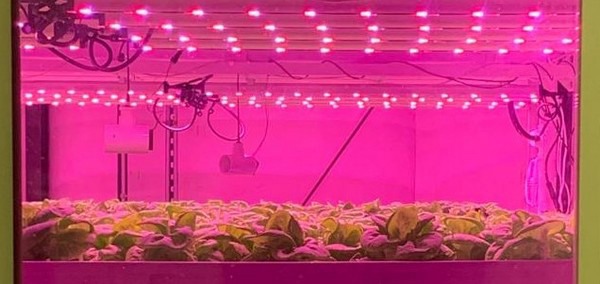This year’s USDA–NIFA Conference, held at Biosphere 2 outside of Tuscson, AZ, from September 9 to 12, brought together a diverse set of experts in the industry—scientists, engineers, economists, business people, and policymakers—to hear from panelists and form ongoing working groups.
Hosted by the University of Arizona’s innovative Controlled Environment Agriculture Center (CEAC), the goal of the conference was to create an interdisciplinary Controlled Environment Agriculture R&D Roadmap and Coordinated Research Plan, which will help these stakeholders apply for funding from the USDA to help fast-forward the CEA industry through basic and applied research.

The conference’s keynote speakers, panels, and breakout groups focused on:
- Economics
- Engineering
- Production systems
- Plant breeding
- Pest and disease management
- Food nutrition and safety
- Industrial ecology in closed systems
FarmTech Society board member Penny McBride—who chairs the FTS committee on standardization—presented on the need for standards for food safety and was honored to sit on a panel alongside NASA plant scientists Gioia Massa and Arizona Food Safety inspector Stewart Jacobson. How CEA production can affect health and nutrition emerged as a key line of inquiry for researchers going forward.
Fellow board member Wythe Marschall—who chairs the FTS committee on education—served as record keeper for the engineering working group. The engineering group agreed on a need for benchmarks and open standards for lights, energy, sensors, and plant breeding.
Overall, FTS was brought into a series of discussions with leading CEA experts, furthering our mission of connecting the industry at a pre-competitive level and creating a platform for amplifying industry voices at the level of university education, government research, and policy.
The final day, conference participants met to discuss the current funding landscape for CEA and form new grant-writing groups to develop specific grant proposals.
For more information:
FarmTech Society
Tom Zoellner
tz@farmtechsociety.org
farmtechsociety.org
